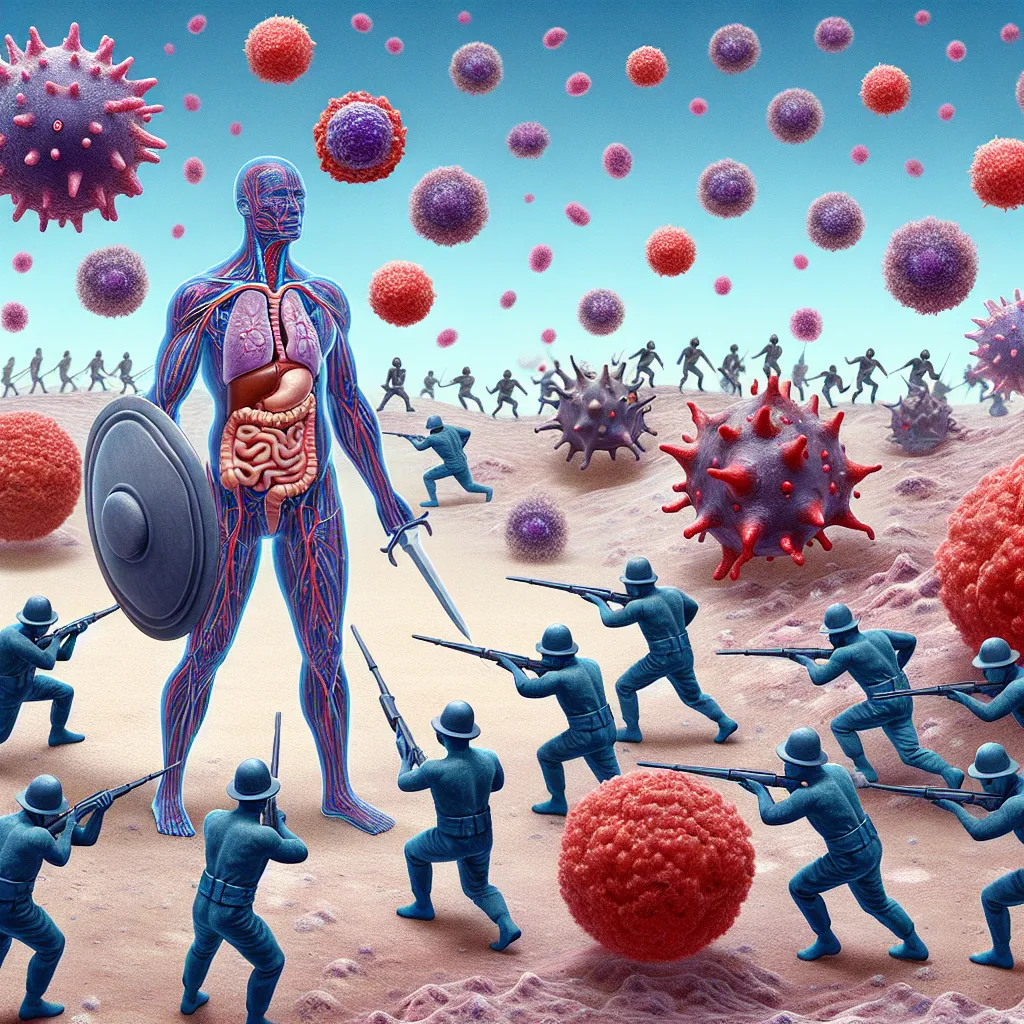Right now, somewhere in your body, your immune system just quietly killed one of your own cells, preventing it from becoming cancer and saving your life. It does this all the time. The vast majority of potential cancer cells get destroyed without you ever noticing. This is because cancer cells are part of you, but they start behaving selfishly, which can be harmful.
Cancer is essentially when your cells go haywire, multiplying out of control. This can happen with any cell type, so we don’t just have one kind of cancer—there are hundreds. Some grow slowly, others aggressively, and they all vary in how treatable they are. Cancer cells turn back the clock to when single cells were just trying to survive on their own. Evolution pushed cells to cooperate, making multicellular life better for everyone involved. But cancer cells break this pact, opting for reckless individuality, which can end up harming your body.
Despite the problems they cause, cancer cells aren’t malevolent. They aren’t out to get you—they’re just following corrupted instructions.
Each of your cells holds DNA, kind of like a blueprint with instructions to make proteins. Occasionally, this blueprint gets damaged—mutates—thousands of times a day just from normal life. Most of these mutations are fixed immediately or are harmless. But over time, damage builds up. Imagine making copies of copies of copies for years—eventually, mistakes creep in.
Certain activities can amp up DNA damage, like smoking, drinking alcohol, or not using sunscreen. Still, sometimes it’s just bad luck from living a long life. Some critical errors in DNA lead to cancer when they affect tumor suppressors, oncogenes, and the suicide switch genes of cells. Tumor suppressors basically act as the cell’s repair team and growth police. Oncogenes are like the gas pedal for cell division, super active when you’re an embryo and supposed to be off afterward. And the suicide switch triggers damaged cells to self-destruct.
If these systems fail, cells can start replicating recklessly without repair or self-destruction, turning into potential cancer cells. At this early stage, they’re weak and easier for your immune system to kill. But if they keep mutating, they get better at hiding and become a bigger threat. Your body constantly hunts these rogue cells, but how does it tell friend from foe?
Your immune system checks what proteins your cells are making. Healthy cells display these proteins on their surfaces using MHC class I molecules, like little windows showing what’s going on inside. If a T Cell sees a protein that shouldn’t be there, it immediately kills the cell. But cancer cells can sometimes cheat by not displaying these windows at all, making themselves invisible to T Cells.
Luckily, there are Natural Killer Cells. These cells roam around, ready to kill any cell that doesn’t have MHC class I molecules. They act as both detective and executioner, ensuring even cancer cells that try to hide get taken down.
Most young cancer cells get destroyed by your immune system, but sometimes the cells mutate further and get better at evading detection. It’s a constant battle, but medical advancements are showing promise. Therapies involving cancer-fighting vaccines, engineered T Cells, and even enhanced Natural Killer Cells are being developed.
We haven’t won the war against cancer yet, but we’re getting closer each day. One day, it might be eradicated for good.






